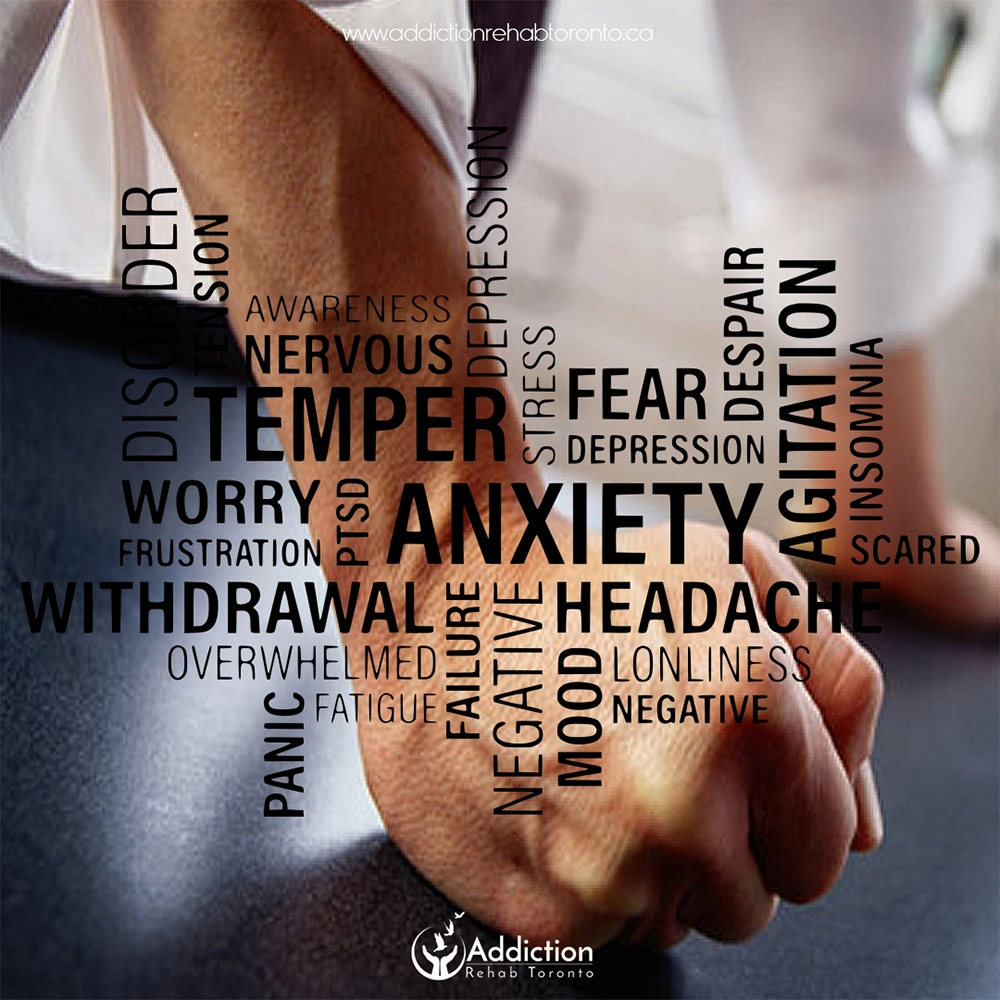Do you think you need “anger management“? Your face is starting to get red, eyes glaring, nostrils flaring, steam coming out of the head, then intense background music. We’re familiar with the way cartoons illustrate what it is to be angry. It may seem over the top. But in everyday life, we may be just as fierce when we’re feeling this emotion.
Encountering uncontrolled displeasure isn’t the best feeling, particularly when it comes with dire consequences. When it happens, you may need to think about whether you have an anger issue. Responding to a situation with aggression that includes swearing, shouting, threatening or being physically violent makes you fit for professional anger management help.
It is essential to know where this anger is coming from. Without anger management classes, It could be to the point that it is affecting your relationship with your loved ones or your work. Anger is not healthy, both physically and mentally.
In this blog, we will show you the importance of anger management. More importantly, we will help you answer that age old question — how does anger management work?
What are Anger Management Issues?
Anger is a strong emotion that happens or shows when you are hurt, disappointed or frustrated. Anger can be healthy for you, but it can also hurt you, depending on how you respond to it. If you show anger without hurting anyone, it can be a good feeling.
If you hold your anger inside, it can affect you in some ways such as isolating yourself or even self-harm. Therefore, dealing with anger can be delicate. You have to know how to respond and react to this emotion can help you handle problems.

What is Anger Management?
Some people think “anger management” is about finding ways to get angry anymore. But failing to get angry is never healthy. “Anger Management” is a program that helps you prevent or control anger. The goal of “Anger Management” is to identify the stressors and help you manage the way you respond to anger.
“Anger management” is not just to suppress anger but to help you understand where it is coming from. It is virtually impossible to keep you away from all individuals and settings that provoke anger. But it can be managed and you can learn to respond to this emotion.
Signs You Need Anger Management Services
If you are wondering whether you even need to know how anger management works, here are some key indicators:
Behaviour History
A quick rundown of your past experiences can be a help. Ask yourself if you quickly get mad at small arguments, breaking things or even just simple traffic. If you’re having problems with calmly expressing emotions, this is one of the main signs that will want you to seek professional help.
Try to evaluate whether you frequently wind up in contentions with your family or colleagues. Even though having disputes can be healthy, those that raise rapidly and happen now and then can be an indication of an anger problem.
Check your family history. Unfortunately, anger problems can also run through families. As children, we learn from families that raised us. We see certain behaviours and may pick it up as we grew old and continue with our lives. It might be a cause of why you have these anger issues.
Holding back emotions
Not all emotions can be expressed openly, specifically with anger. Do you often find yourself holding back anger? Some people with anger problems prefer themselves isolated or even try self-harm because of unexpressed emotion.
Suppressing anger can often lead to depression and anxiety. Assess yourself and take note of how you respond to a provoking situation, such as someone making fun of you or just being plain rude.
Physical and Emotional Symptoms
When a person starts to get mad, you can detect it right away. Remember the nostril-flaring, eyes glaring, redness of the face and even intense sweating. Those signs can tell you that, that person is angry.
Anger also happens to come with certain physical signs in your body. There are various bodily signs of anger, and it varies from person to person. Pay attention to your body and take note if these symptoms show.

The physical symptoms consist of:
- Heavy Sweating
- Fists Clenching
- Grinding of teeth
- Increased heart rate and blood pressure
- Muscle tensions
- Numbness and fatigue
- Blushing
- Headache
- Tightening of the chest area
Anger does not only shows signs or traces outside the body. There are also emotional symptoms that you might not notice but can be a cause of having anger issues. It includes depression, lack of sleep, anxiety, frustration, paranoia, and even social isolation. If these signs occur, then it is best to consult a mental health professional.
Recognizing the signs and assessing where the anger came from is a big help for you to know if you need “Anger Management.” It may be a healthy way of expressing your rage, but doing it too much may cause harm. Being angry is just a normal emotion or reaction, but there is still a limitation to this.
If one of these signs appear to you or to someone you know, you might want to consult a mental health professional. A mental health professional can help you understand what you feel and how you can manage it. Knowing how to manage your anger and express appropriately can lead to a healthy lifestyle and can build a better relationship.
How Does Anger Management Work?
“Anger management” works in many ways, be it by group or individually as a personal resort or with the help of a professional. Either way, it begins with getting comfortable with yourself or with someone if you opt to do it with a counsellor.
This timeline for this form of therapy will depend on your receptivity and emotional well-being. It is vital to take note also that each individuals’ coping mechanism to anger varies. It is safe to say that each situation is unique. It effectively works once you learn to accept your flaws and set your mind to start managing your temper wholeheartedly.
Understanding what triggers you to feel that way is the first thing to unveil. These “triggers” may be under the classification of physical or emotional triggers. These are cues you can remember and observe that anger may start anytime. It will be helpful to note and list the things which begin or worsens your emotions.
Try to observe this happens and the specific person that may be a cause of this. A trait, weather condition, bodily conditions, medications, weight loss, places, and environmental variables can contribute to anger issues.
Emotional triggers are feelings that worsen your anger. It can be because of a crying baby, heavy traffic, financial problems, impossible workload in your career, or any other personal issue. It is also essential to take note that you have to learn to work on conditions like depression, anxiety, loss of focus or other emotional problems. It is so that your “anger management” will efficiently work for you.
The Technique
This technique aims to eventually help you to manipulate the situation to be less angry and aggressive and communicate your struggles assertively. “Anger management” works if you learn to understand and get to know yourself better to address your anger issues. It mostly begins by recognizing what your triggers are and managing it.
For instance, physical triggers like lack of sleep can be remedied by getting enough sleep or performing less energy-requiring activities. In this way, you will not feel a lot tired but well rested. You will feel good.
You can work productively and sustainably. It is undoubtedly possible in each scenario. Next, ientify situations or factors that can push you to your limit and respond non-aggressively, like a conflict with a partner.
This can be managed by keeping quiet for some time and not arguing with each other with your anger still present. Not giving in to your anger and inner demons will preserve the relationships you have.
Despite your anger, you may be able to build and deepen your affection with each other. Furthermore, devising techniques to help you calm down like taking breaths at a time, doing other stuff and making yourself busy will divert tension.
It will help you calm down and analyze the situation more to avoid even more conflict. Once you feel that you are starting to get angry and that it worsens, recognize why and when you are logically thinking and try to correct it.
Strategies
Build strategies to calm down or at least snap out of it for a moment. Express how you feel calmly and start focusing on solving the problems you are battling with. Start at the top, by finding out what is causing you to feel that way and solve it. Eventually, you will notice that you are feeling lighter and that your anger may dissipate.
Communication should also be done to defuse your anger and resolve conflicts even more. Managing anger and temper in totality may, therefore, be a good trait to develop to become a better parent, friend, daughter/son, workmate and a person.
By learning how to do this, you can create a healthier environment for yourself and the people around you. You will learn to respond non-aggressively to situations, communicate better and resolve problems and issues immediately. This is something you can do with your psychological health and other conditions that may have a connection to anger.
Managing anger and frustrations properly can also be used as a motivation to work harder and get things done in no time. Work even more with less stress and avoid bad situations and habits like prohibited drugs, alcohol and likes as an escape for your anger.
“Anger management” is the right solution for issues which may rise beyond your control. Remember, anger is part of your standard pool of emotions. Accept it and manage it effectively, vent it out calmly and live happier and healthier.
What are the Benefits of Anger Management?
People feel angry because they are not satisfied with what they are doing. It can be because of what they didn’t do right. They may even think someone behaved in a wrong and unacceptable way.
Without much help, you can be a student or a busy professional dealing with your anger. It can lead a person into a spiral effect of being unaware, irritated and problematic. It can also affect your decision making, damage relationships and otherwise cause harm. “Anger management” is the only way to lessen the impact of these side effects.
Here are some of the benefits you stand to gain from professional “anger management”,:
Helps you recognize your duties as a person.
With “anger management”, you can finally acknowledge if you are the root of the issue or if you are innocent. Furthermore, you can comprehend how to handle a situation calmly if they realize that it’s their fault. It will help you become a more balanced person.
You can learn how to hold back your anger and control your words or actions.
Anger management will change you and help you become better than who you used to be. It will help you with replacing your vigorous and violent communication measures.
Anger can be prevented most of the time if the parties involved learn how to communicate. With anger management classes, you will learn that it is ethically wrong to throw bad words at each other and talking it with the right attitude can resolve the fight.
It helps you to be socially aware
It allows you to create sympathy for others, which allows you to understand the other party. When you begin to develop empathy and attempt to see life from their view, you will discover that there is no need for anger and heightened emotions.
Anger management helps you acquire new understanding
It gives you the chance to learn more about your anger as well as the root cause. Commonly, the way you behave and express yourself in your daily routine is related to the emotions and thoughts you have encountered in your past. When you explore this connection during treatment, you will start to acquire a fresh understanding to assist you in becoming more conscious of your emotions.
It will give you an overall higher level of happiness
Because you can overcome the negative emotion that is anger, it will help you feel relieved and take away from the stress. In the end, it will feel like something was pulled out from your chest and you get to enjoy your life more than before.
Anger management can boost your confidence and self-esteem
Without hesitation, you can express your side clearly to make peace with others and with yourself. You become more confident to handle a situation because you already know that it will not trigger your emotions.
It can give you a healthy lifestyle
“Anger management” will teach you to make better decisions such as eating at an exact time and helping your body get healthier. Also, you can sleep well without questioning whether or not you have hurt someone else.
Activities to Help You with Anger Management
Someone cuts you off in line while you’re getting a coffee. Breathe in, breathe out. You get stuck in heavy traffic, and you’re late for work. Breathe in, breathe out.
You spilled mustard in a shirt while eating a hot dog for lunch. Breathe in, breathe out. The photocopier jammed. Breathe in, breathe out. Sometimes taking deep breaths helps you calm, but is it enough?
If you’re still trying to figure how to control your anger, here are some activities and exercises that can help:
Breathe In, Breathe Out
Yes, breathing exercises are still the first thing you must do when you are about to lose it. When you get angry, your breathing will start to get faster and laboured. It may lead to hyperventilation and palpitations. It can also cause faintness, dizziness, lightheadedness, and confusion.
Doing proper breathing exercises will make your body calm and relaxed. First, breathe into your nose and exhale through the mouth. Do it slowly, and breath deeply from your stomach. It works best when you do it regularly whether you are angry or not. Sometimes, you need three deep breaths to make everything better.
Keep Calm and Relax your Muscles
Clenched fists and jaw, tension throughout your body, tapping feet and restlessness are all signs you need to calm down. Instead of giving in to these physical symptoms of anger problems, try to relax your muscles.
You can try Jacobson’s Relaxation Technique or Progressive Muscle Relaxation technique. This technique is a type of therapy that makes your muscles relaxed. By focusing on specific areas, tensing and relaxing them for a slow count of five to ten, this may help you become aware of your body. This technique is best if used in combination with a breathing exercise.
Visualize
Sometimes, imagining yourself from a different point of view helps you understand the situation. But if you are the situation, visualizing yourself might help. For instance, visualizing yourself calming down may lessen your anger.
Try to imagine your safe and quiet place or anything that makes you calm. It can be food, a sound or song, or a person — whatever helps you stay at ease. Allow your mind to be in a creative mindstream. Let your imagination flow.
Laughter is the Best Medicine
Even light humour can help to ease out tension. Using humour to help you deal with what is making you mad can lighten the mood and help you stay calm. Of course, this is not for everybody, but why not try. Humour can be a form of distraction from getting angrier. Just avoid sarcasm jokes, that might not go well and you may end up hurting someone.
What Pushes Your Buttons
Always recognize what triggers you. People have different and specific triggers. Make a list of what makes you angry, then try to stay away from or manage those situations if possible.
Think before you speak
Stop and listen. It is important. People often tend to have some hasty opinions and make statements that are unpleasant when they are mad. In the worst case, it may lead to physical violence.
Take time to collect your thoughts before saying anything inappropriate. It can enable your outrage to drop. Another breathing exercise may help to calm the mind.
Take a Walk/Run
A simple walk or run can improve your mood and lessen your negative feelings. Physical activities can also help you decrease stress that leads you to become irate. Whenever you feel like you are about to get angry, go for a quick walk or run.
Getting Help: What You Should Know About Attending Anger Management Classes
“How does anger management work?” Choosing to find an answer to that question is a great first step to proper anger management. The same goes for trying to find out “what happens during anger management sessions” or “what is anger management?”
But, beyond those basic pieces of information, there are still a couple of things you need to know. For example, in your first anger management class, the chances are that you’ll feel a tad intimidated.
This is especially so if you’re going to be opting for group therapy. This is perfectly normal as confronting your emotions can be quite a task sometimes. Still, it’s completely worth it, and you shouldn’t allow yourself to cave under the anxiety.
Another interesting thing to note about anger management classes is that they’re for you. As long as you feel the need to control your anger, it doesn’t matter if you’re male, female, old, young, single, or committed.
You can get anger management classes and get firsthand answers to the question, how does anger management work? You have total freedom.
However, you should keep in mind that that freedom is limited if the court compels your classes. In that case, you would have to attend and cannot opt-out until your time is due.
Which is Better: Educational Classes or Individual Sessions?
The answer to this question is largely dependent on you and your preferences. In educational classes, you’re overseen alongside a group of other people dealing with the same challenge. It is much like group therapy.
In this method, your trainer will guide you and your colleagues through your anger. The trainer will help you understand your triggers, among other things. Then, they’ll help you overcome the anger through detailed and useful strategies.
Individual sessions, on the other hand, function a tad differently. In this situation, you aren’t working with your instructor among a group of people. Instead, you’re taking private lessons and learning how to control your anger by yourself.
In the first case, you’ll get to see and interact with people like you. You’ll also get encouragement from them when the need arises. However, you might feel a tad shy at first.
In the second case, you can get direct help and supervision from your trainer. You won’t necessarily need to have anyone in your business. It will just be you and your instructor.
So, like we said, deciding which is best is largely up to you. If you enjoy mingling with people and solving problems together, the first might be a great idea. Otherwise, you can simply attend an individual session.
How Untreated Anger Issues Can Affect Your Life

If you find neither of the options suitable and choose not to deal with your anger, it’s entirely your choice. However, you should keep the following in mind:
- Elevated levels of anger and stress are likely to leave you open to serious health conditions.
- Examples include diabetes, heart conditions, etc.
- Staying uncontrollably angry can affect your mental health. More specifically, it could lead to depression, stress, etc.
- Anger could affect your work negatively. This is especially so, for example, when you lash out instead of taking or giving constructive criticism.
- Explosive, unchecked anger might make it harder for your relationships to function.
Takeaway
There are ways to manage anger. Every person has different trigger points. If you feel that your anger is really out of control, then this might be the best time to seek help. Talk to a mental health professional. They can help you find a proper treatment plan that suits you.
Figuring out how to control your anger is a challenge to everybody. It takes a lot of effort, time and patience, but you’ll get there. Trust in the process and help yourself. Do not get scared to seek medical attention or help a family or close friends. Sometimes talking to someone who you can trust can help. Contact Addiction Rehab Toronto to speak to an experienced anger management professional today!
Related article: Top Tips For Anger Management







